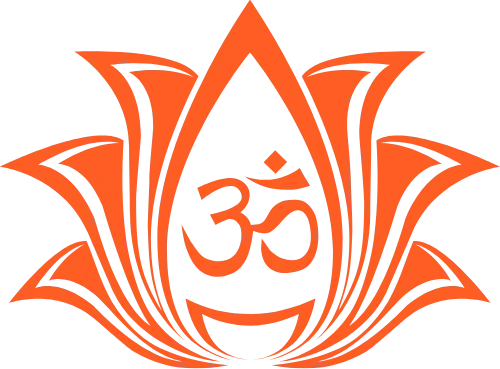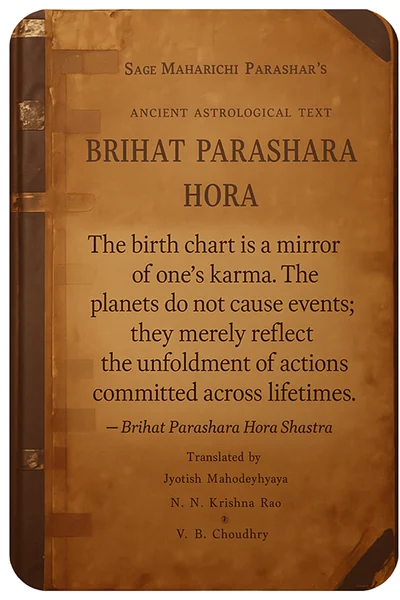

The Shadowed Flame of Vedic Astrology
In the ancient mists of time, long before the modern world understood the stars, there lived a sage whose mind could pierce the karmic depths of the cosmos, Maharshi Parashara. Revered as the father of Vedic astrology (Jyotish Shastra), Parashara was not just a seer of stars, but a wounded soul shaped by violence, exile, and divine destiny.
In the ancient mists of time, long before the modern world understood the stars, there lived a sage whose mind could pierce the karmic depths of the cosmos, Maharshi Parashara. Revered as the father of Vedic astrology (Jyotish Shastra), Parashara was not just a seer of stars, but a wounded soul shaped by violence, exile, and divine destiny.
Parashara was born into a lineage of sages but was marked by tragedy. His father, Sage Shakti, was killed by a demon-possessed king. This violent loss scarred the young Parashara, planting in him a dark seed, a rage that burned silently beneath his serene exterior. It is said that his inner anguish birthed his early obsession with cosmic justice and karma, the very foundation of astrology. How could the righteous suffer while tyrants thrived? The stars, he believed, held the answer.
Parashara was born into a lineage of sages but was marked by tragedy. His father, Sage Shakti, was killed by a demon-possessed king. This violent loss scarred the young Parashara, planting in him a dark seed, a rage that burned silently beneath his serene exterior. It is said that his inner anguish birthed his early obsession with cosmic justice and karma, the very foundation of astrology. How could the righteous suffer while tyrants thrived? The stars, he believed, held the answer.
As a youth, Parashara attempted to destroy the entire world with a powerful curse born from his trauma. But divine voices restrained him. Realizing the dangers of uncontrolled anger, he chose transformation over destruction and thus began his lifelong pursuit of decoding the planetary forces governing human fate.

His magnum opus, the Bṛhat Parāśara Horā Śāstra, is more than just a treatise. It is a psychological map of the human soul, detailing how planets shape destiny, emotion, suffering, and salvation. Every page reflects a man who had stared into the abyss and chose to understand it rather than be consumed by it.
Yet Parashara’s legacy extends beyond astrology. He fathered Maharishi Ved Vyasa, the sage who compiled the Mahabharata and the Vedas a symbolic passing of inner wisdom to outer expression. Through Vyasa, Parashara’s karmic insight shaped the very moral and spiritual code of Hindu civilization.
Today, Parashara a sage who turned darkness into divine knowledge. He is not just a historical figure; he is the psychological architect of destiny itself.
As a youth, Parashara attempted to destroy the entire world with a powerful curse born from his trauma. But divine voices restrained him. Realizing the dangers of uncontrolled anger, he chose transformation over destruction and thus began his lifelong pursuit of decoding the planetary forces governing human fate.
His magnum opus, the Bṛhat Parāśara Horā Śāstra, is more than just a treatise. It is a psychological map of the human soul, detailing how planets shape destiny, emotion, suffering, and salvation. Every page reflects a man who had stared into the abyss and chose to understand it rather than be consumed by it.
Yet Parashara’s legacy extends beyond astrology. He fathered Maharishi Ved Vyasa, the sage who compiled the Mahabharata and the Vedas a symbolic passing of inner wisdom to outer expression. Through Vyasa, Parashara’s karmic insight shaped the very moral and spiritual code of Hindu civilization.
Today, Parashara a sage who turned darkness into divine knowledge. He is not just a historical figure; he is the psychological architect of destiny itself.

